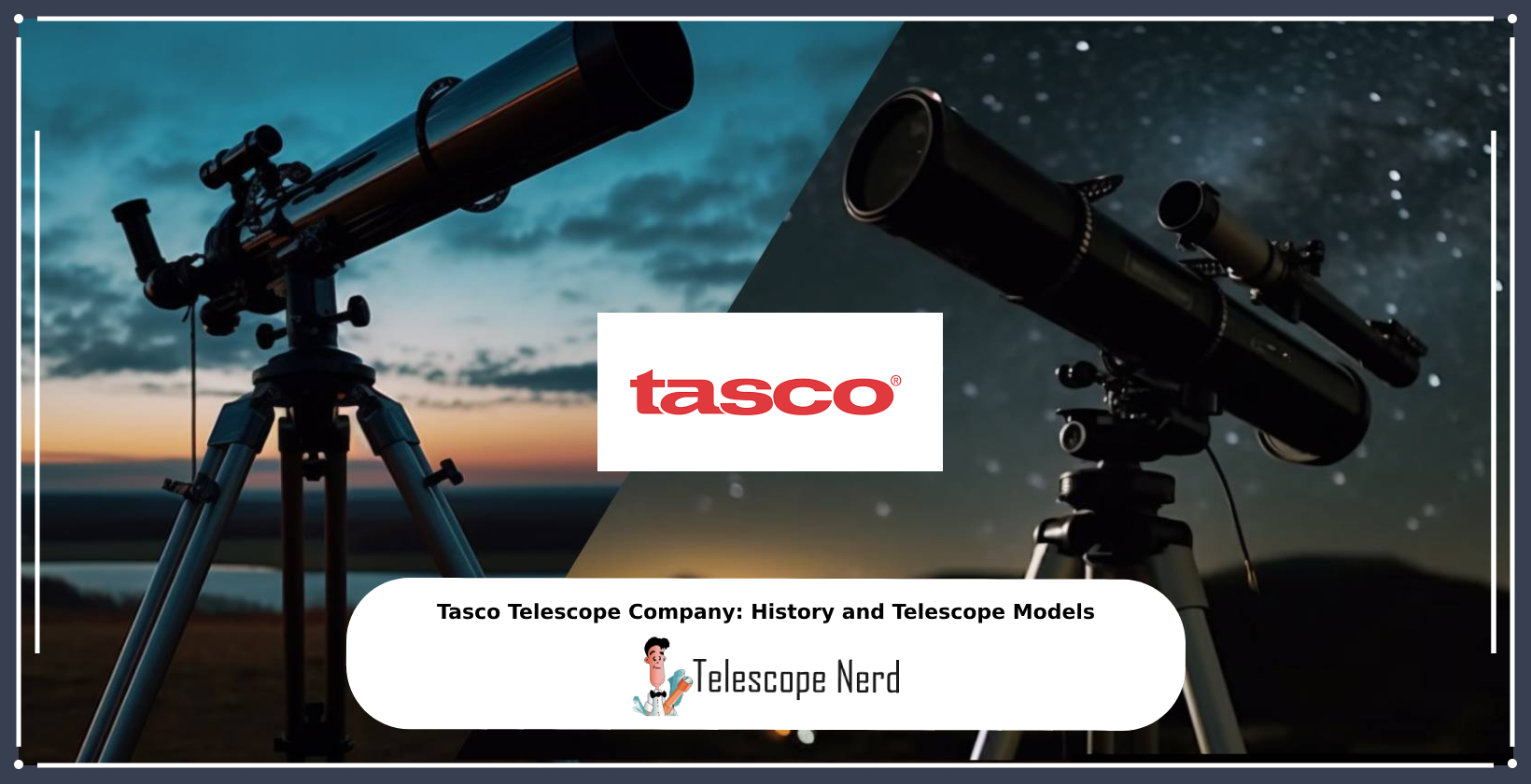Tasco Telescope Manufacturing: History and Quality
Tasco is an optics company that produces telescopes. Tasco was established in 1954 by George Rosenfield in Miami, Florida. Over the years, Tasco has grown to be a significant player in the optics industry, with a team that spans internationally.
Tasco is recognized for its telescopes, but the brand produces various optical devices. These optical devices include spotting scopes, binoculars, rifle scopes and more.
Tasco has a long history of producing high-quality optics, meticulously manufactured by different facilities worldwide. The high standard of quality in Tasco products is a testament to their long-standing dedication to high-performing optics. Knowing Tasco’s history and reputation allows astronomers to make informed decisions between their products and their competitors.
What is the History of Tasco Company?
Tasco was founded in 1954 by George Rosenfeld under the name “Tanross Supply Company.” At this time, Tasco was a hardware and fishing tackle supplier, but the name was later shortened to “Tasco” as the business expanded into binoculars and eyepieces.
On May 29, 2002, Tasco Worldwide defaulted on nearly $30 million in loans and initiated the liquidation of all its assets. In June 2002, Tasco was acquired by Bushnell, a privately held company funded by Wind Point Partners. In July 2007, Wind Point Partners sold Bushnell Performance Optics, along with the Tasco brand, to another private equity firm called MidOcean Partners.
On September 5, 2013, Alliant Techsystems (ATK) acquired Bushnell, with Tasco, for $985 million. On February 9, 2015, ATK merged with Orbital Sciences to form Orbital ATK. Orbital ATK spun off Bushnell and its subsidiaries into Vista Outdoor, where Tasco remains today. Throughout the mergers and acquisitions, Tasco’s production process and locations continuously evolved to optimize its manufacturing costs.
Who Manufactures Tasco Telescopes?
Tasco telescopes are primarily manufactured by Synta Technology Corporation’s plant in Suzhou, China. However, some of Tasco’s optical components are outsourced to undisclosed factories in China, Japan, and the Philippines to reduce manufacturing costs. By lowering manufacturing costs, Tasco is able to maintain its cost-effective pricing without sacrificing quality.
How is the Quality of Tasco Telescopes?
Tasco telescopes are of sufficient quality for entry-level observations, such as the moon or star clusters. Their focus on affordability results in lower-quality optics than brands like Celestron or Meade, but Tasco’s quality is undoubtedly the highest within its price range.
Tasco provides adequate optical clarity for basic stargazing. However, advanced astronomers will generally find them lacking in clarity for deep-sky observations. The build of Tasco telescopes often incorporates plastic components, which negatively affect the durability and stability of the telescope. Over time, this leads to wear and tear more quickly than with other brands Other brands will offer higher-quality optics, along with a higher price tag, for individuals looking to invest in detailed, deep-sky observations.
What Are the Competitor Telescope Brands for Tasco?
Tasco provides budget-friendly telescopes, but many observers select other brands of telescopes to obtain higher-quality observations. Celestron, Orion and Meade are common competitor brands for Tasco.
Celestron, founded in 1960, provides telescopes ranging from beginner designs to advanced astrophotography equipment. Celestron’s strength lies in its adaptability, continually updating its product line to incorporate new technological advances.
Orion, originating in 1975, offers a wide variety of telescopes and accessories. Their products are commonly used for their durability and reliability. Orion caters to both novices and seasoned astronomers, ensuring that they remain a formidable competitor in the market.
Meade, established in 1972, is commonly used for their advanced computerized telescopes and high-quality optics. Meade also caters to a wide audience, from beginners to professionals, due to their wide range of telescopes.
Each of these brands is a common alternative to Tasco, differentiating themselves with specialized features, technological innovations, and a target demographic.









